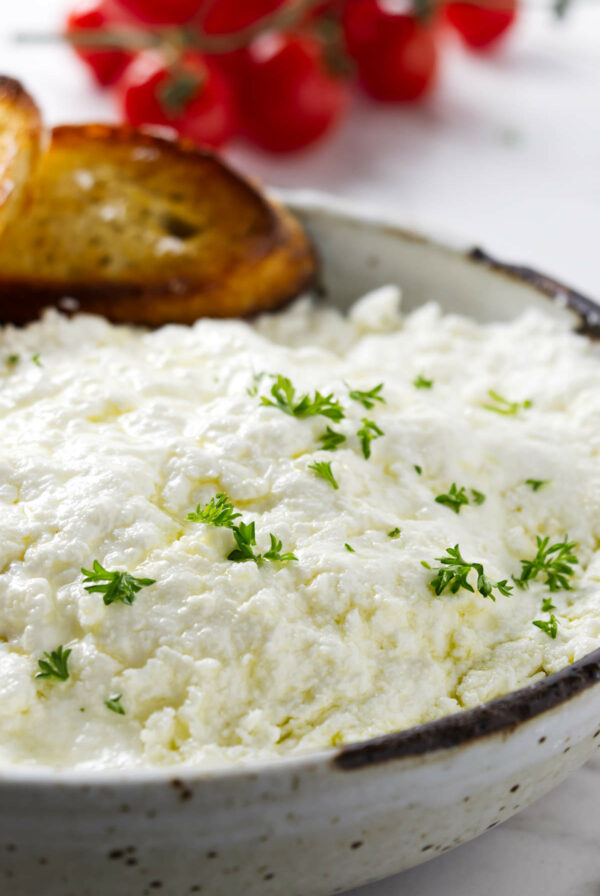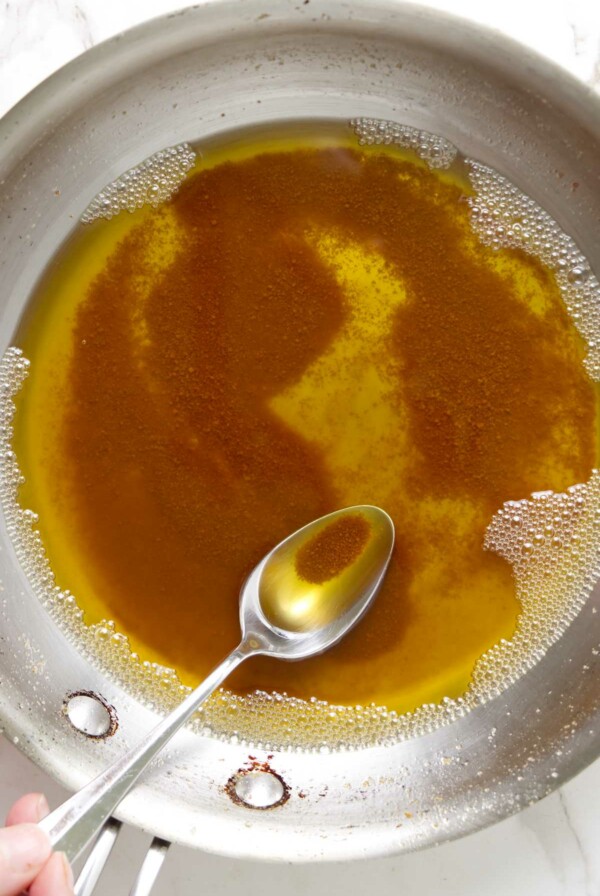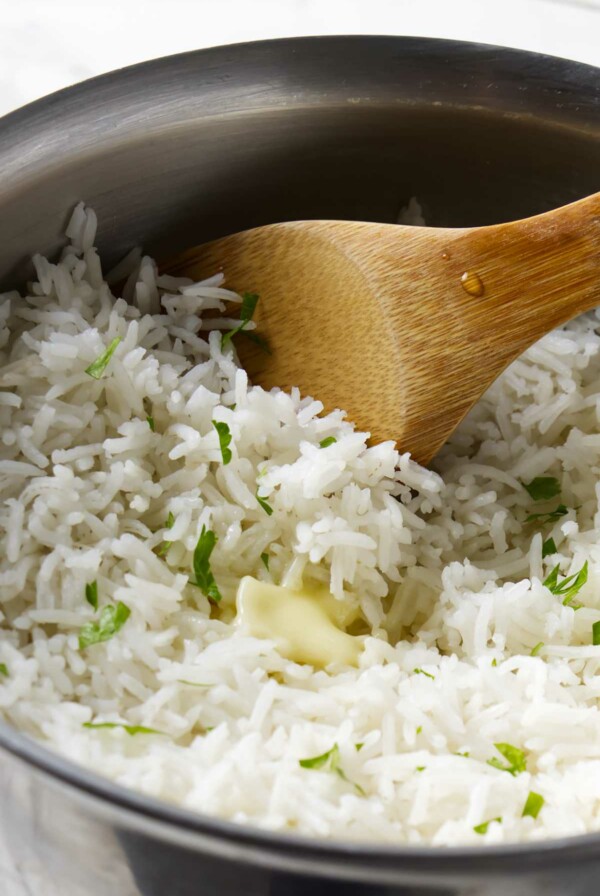This post may contain affiliate links. Please read our disclosure policy. As an Amazon Associate, I earn from qualifying purchases.
The flour you choose for your pizza dough makes a big difference in how your crust turns out. Are you after a chewy, hearty crust that holds up to a pile of toppings? Or a light, airy bite with crisp edges? Your flour choice is what makes or breaks the texture.
Pizza flour (aka 00 flour) and bread flour are the top contenders, but don’t count out all-purpose flour, it still has a place in pizza-making. Each flour type has different protein levels, gluten development, and hydration needs, all of which affect the structure and feel of your final pizza crust.
Pizza Dough Made with Different Flours
Here’s a look at three pizzas made with different flours. You can see how each flour affects the crust’s rise, texture, and overall look:
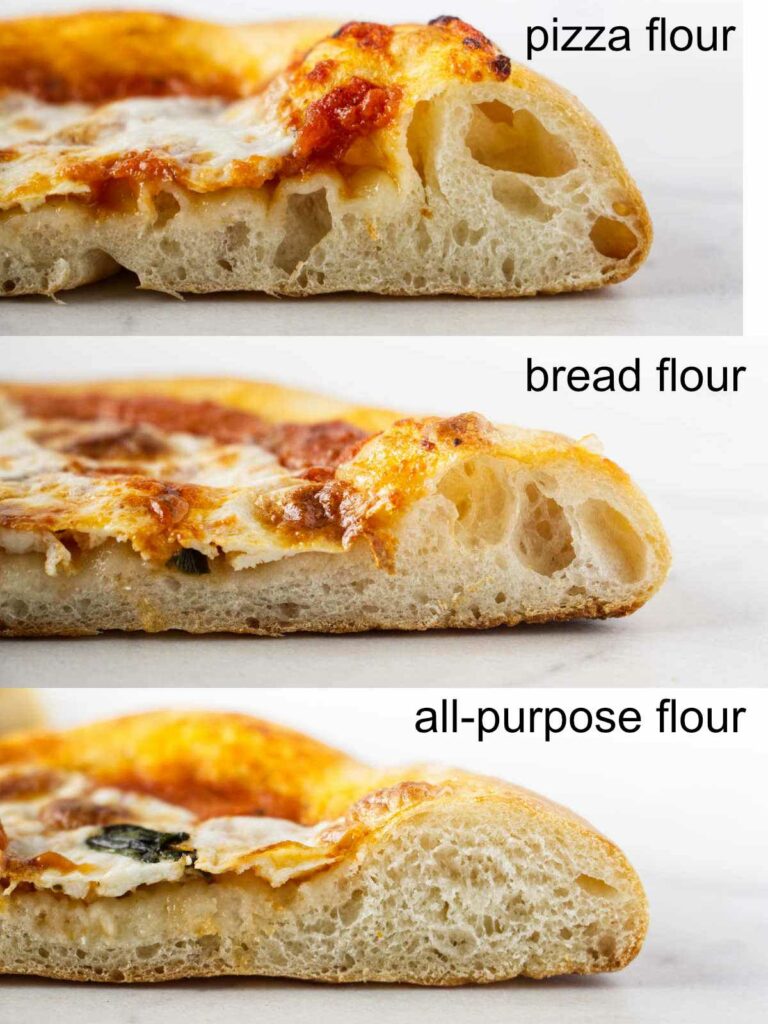
Now, let’s break down what makes each type of flour unique and which one is best for the style of pizza you want to make.
Pizza Flour vs. Bread Flour vs. All-Purpose Flour
Pizza Flour (00 Flour)
Pizza flour, or 00 flour, is finely milled Italian flour that creates a smooth, elastic dough and results in a light, crispy, and airy pizza crust. It has a moderate protein content (11-12.5%), so it forms enough gluten to be stretchy but not tough.
Why Use 00 Flour?
- Super fine texture: This flour is milled to powdery perfection, making the dough easy to work with.
- Lower water absorption: Requires less hydration compared to bread flour.
- Balanced gluten structure: Stretchy yet tender, producing crisp, airy crusts.
- Best for: Neapolitan-style pizzas, New York-style thin crust, and high-temperature baking.
Neapolitan pizza purists swear by 00 flour, but there’s a catch: it works best in high-heat ovens (700-900°F). My Ooni Pizza Dough Recipe is a great place to start. Most home ovens max out around 500°F, so while you can still get great results, it won’t have quite the same crispness and airiness as a true Neapolitan pie.
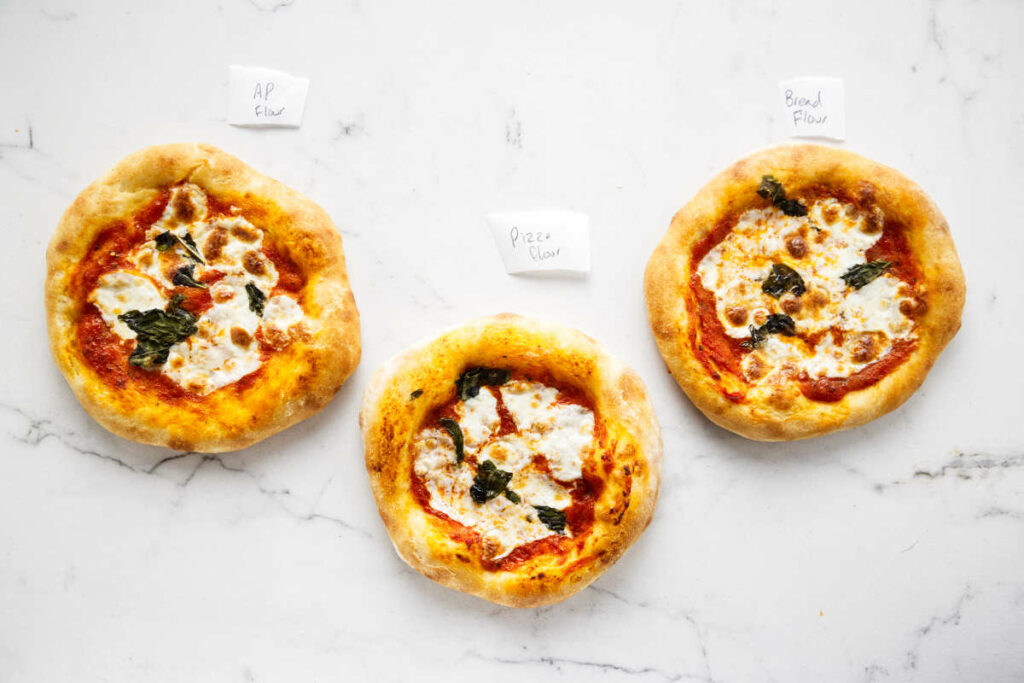
Bread Flour
Bread flour has a higher protein content (12-14%), which means stronger gluten development. The result? A dough that’s chewy, structured, and can handle extra hydration without turning into a sticky mess.
Why Use Bread Flour?
- Higher protein = more gluten: Great for a sturdy, chewy crust.
- Absorbs more water: Makes the dough easier to work with, especially in high-hydration recipes.
- Holds up under toppings: Strong gluten structure means your crust won’t collapse under the weight of thickened pizza sauce and cheese.
- Best for: New York-style pizza, thick-crust pizza, and deep-dish pizza.
Bread flour is ideal if you like a pizza crust with some bite. It’s also great for styles that require a thicker, more structured base, like deep-dish and Sicilian pizzas. And if you’re looking for another way to put that strong gluten structure to use, try it in my pizza dough breadsticks.
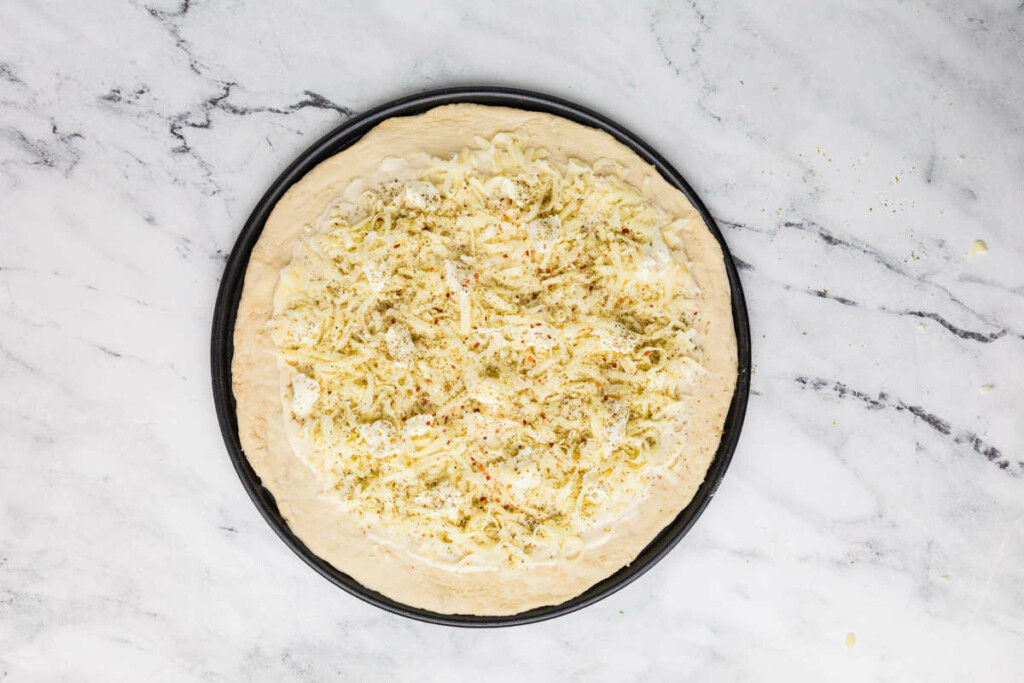
All-Purpose Flour
All-purpose flour sits between 00 flour and bread flour in terms of protein content (9-11%). It won’t give you the same chewiness as bread flour or the crispiness of 00 flour, but it’s a solid middle ground.
Why Use All-Purpose Flour?
- Versatile: Works for a variety of pizza styles.
- Easier to handle: Lower gluten content makes it more forgiving to work with.
- Softer crust: Not as chewy as bread flour, not as crisp as 00 flour—just a nice, balanced texture.
- Best for: Classic homemade pizzas, sheet-pan pizzas, and softer crusts.
If you want a dough that’s easy to shape and gives you a well-rounded crust, all-purpose flour is a great choice. It’s not as specialized as the other options, but it still makes a darn good pizza.
Related: Learn how to layer a pizza.
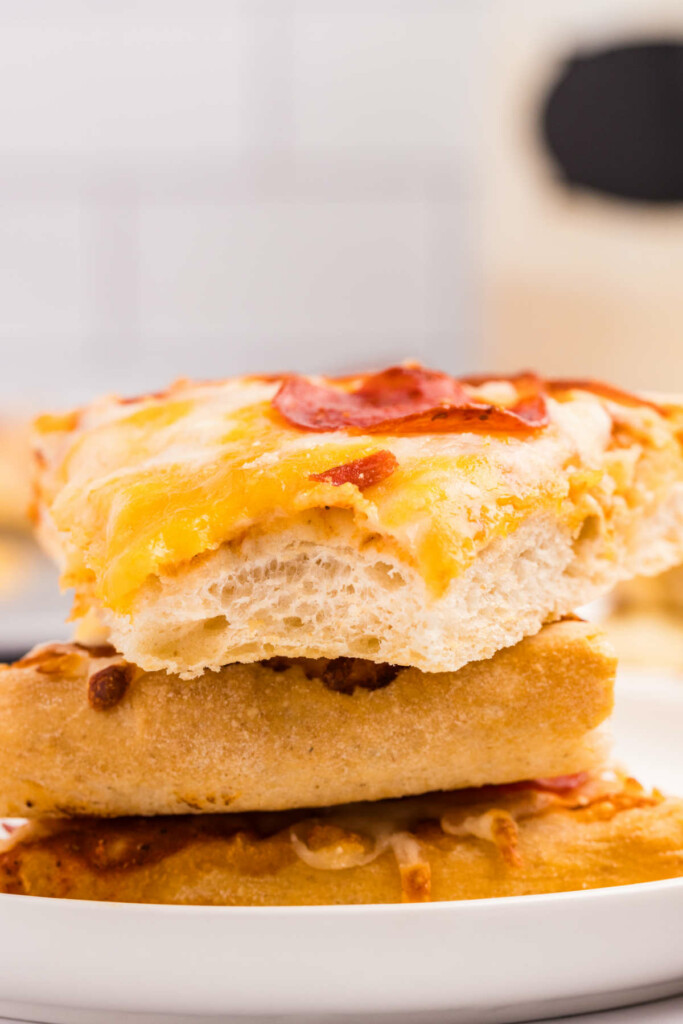
How Different Flours Affect Your Pizza Crust
To help visualize the differences, here’s a quick comparison chart summarizing the key characteristics of each flour:
| Flour Type | Protein Content | Texture & Crust | Best For |
|---|---|---|---|
| 00 Flour (Pizza Flour) | 11-12.5% | Light, airy, crispy | Neapolitan pizza, NY-style thin crust |
| Bread Flour | 12-14% | Chewy, strong gluten structure | NY-style, deep dish, Sicilian |
| All-Purpose Flour | 9-11% | Softer, balanced crust | Classic homemade pizza, sheet pan pizza |
Which Flour Should You Use?
It all comes down to what kind of pizza you want. Any one of these flours will work in my simple pizza dough recipe.
- For a crispy, airy Neapolitan-style crust: Go with 00 flour.
- For a chewy, sturdy crust that holds up to toppings: Bread flour is your best bet.
- For an easy, balanced crust: All-purpose flour does the trick.
Experiment with different flours (or even blends) to find your perfect pizza dough. Want to try something unique? Give my einkorn pizza dough a go. No matter what you choose, you’re still getting homemade pizza, which is always a win.


